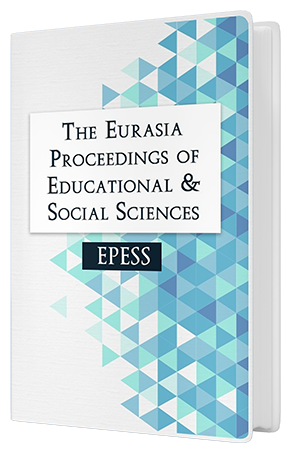Observing the Impact of Science Education on Undesirable Behaviors of Students in the Agent-based Simulation Environment
Keywords:
Education, Agents, SimulationAbstract
Agent-based modeling is a new computational model for social sciences. Computational models are formulated as computer programs which represent the processes that exist in the social world. When simulations of these computational models for social sciences are performed, it is possible to gather information about real systems' processes and predict future outcomes of the processes. The agent-based model includes a set of agents that represent real actors in a real system in the simulated environment. The simulated environment represents the environment in which the agents contain their resources and perform their actions. Agents interact with other agents and entities in the environment while they try to achieve their individual goals. In the present study, it is aimed to imitate the school environment in a simulation environment by using the Repast Simphony 2.4 simulation tool and observe the impact of science education on undesirable behaviors of students represented by agents in the simulation environment.Downloads
Published
Issue
Section
License
Copyright (c) 2019 The Eurasia Proceedings of Educational and Social Sciences

This work is licensed under a Creative Commons Attribution-NonCommercial-ShareAlike 4.0 International License.
The articles may be used for research, teaching, and private study purposes. Any substantial or systematic reproduction, redistribution, reselling, loan, sub-licensing, systematic supply, or distribution in any form to anyone is expressly forbidden. Authors alone are responsible for the contents of their articles. The journal owns the copyright of the articles. The publisher shall not be liable for any loss, actions, claims, proceedings, demand, or costs or damages whatsoever or howsoever caused arising directly or indirectly in connection with or arising out of the use of the research material. All authors are requested to disclose any actual or potential conflict of interest including any financial, personal or other relationships with other people or organizations regarding the submitted work.




